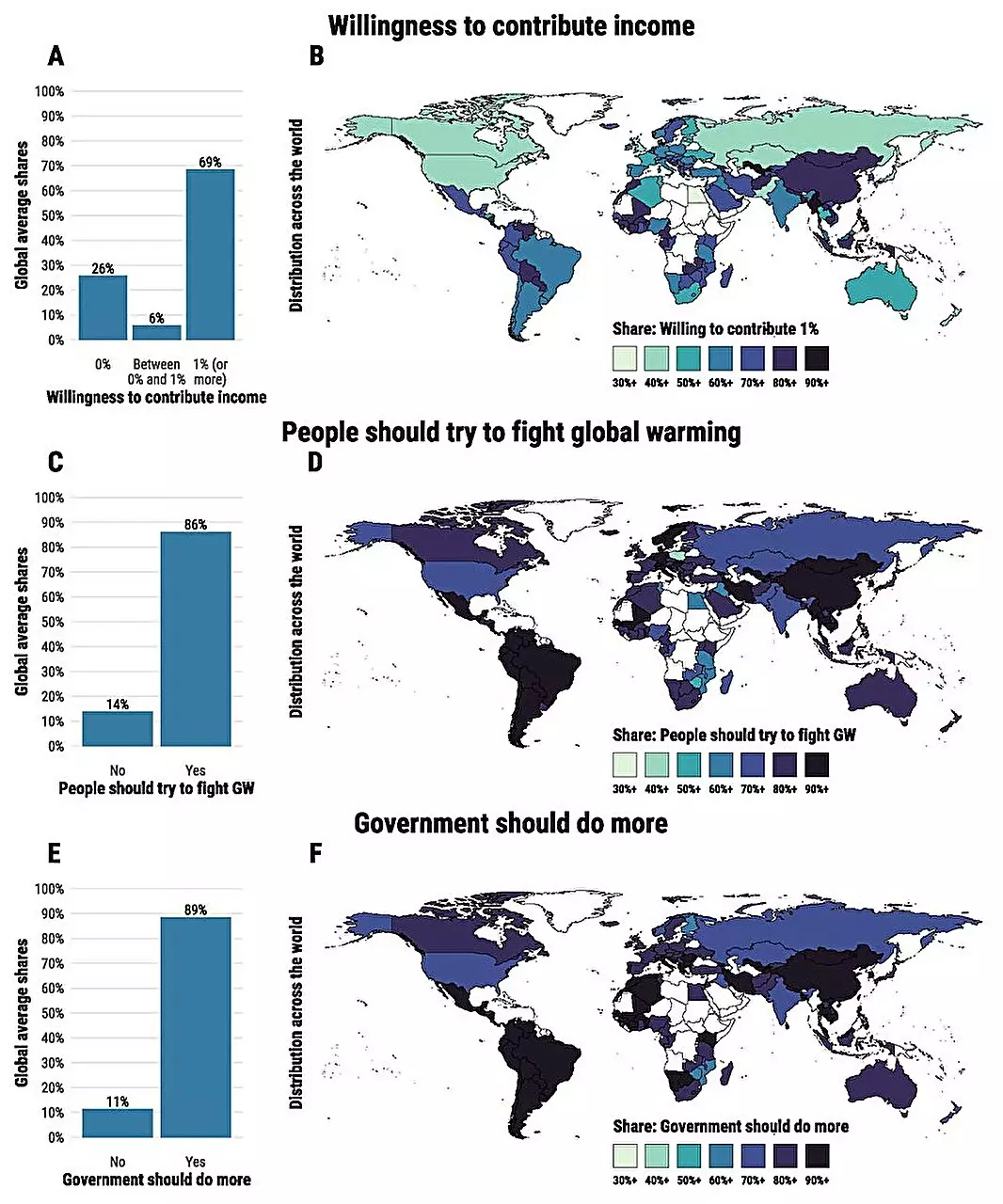A recent study by behavioral researchers at the University of Bonn, the Leibniz Institute for Financial Research SAFE in Frankfurt, and the University of Copenhagen has revealed that an overwhelming majority of the world’s population supports climate action and is prepared to make personal sacrifices to combat climate change. The groundbreaking findings, which have been published in Nature Climate Change, are based on a comprehensive and globally representative survey conducted in 125 countries, involving approximately 130,000 individuals. The study highlights that an astonishing 69% of the global population is willing to contribute 1% of their personal income towards the fight against climate change—a substantial indication of their commitment to climate action.
Moreover, the study demonstrates that a staggering 86% of the respondents endorse pro-climate social norms, emphasizing their shared belief that society should actively combat global warming. Furthermore, an overwhelming 89% of individuals voiced their call for increased political action to address the pressing issue of climate change. Interestingly, the research also reveals that countries most severely affected by the consequences of global warming exhibit even higher levels of willingness to fight against climate change. However, in countries with a high GDP per capita, the willingness tends to be comparatively lower than in other nations.
Although the survey results are overwhelmingly positive, they bring to light a concerning trend: the consistent underestimation of fellow citizens’ willingness to take action against climate change in every single country. The study reveals that the actual proportion of individuals willing to contribute 1% of their income (69%) is underestimated by a significant margin of 26 percentage points globally. This systematic misperception of public support for climate action poses a risk to the efficacy of efforts in mitigating climate change. Individuals who underestimate public backing for climate action are often less motivated to take action themselves.
The study underscores the importance of effective communication in promoting climate action. Rather than focus on the concerns of a vocal minority who oppose any form of climate action, it is crucial to highlight the overwhelming consensus among people around the world who are willing to take concrete steps and expect their governments to follow suit. The researchers argue that the prevailing pessimism surrounding climate action can be discouraging and immobilizing. Therefore, fostering optimism about the feasibility of climate action has the potential to unlock a positive and transformative dynamic.
The survey, conducted as part of the 2021/2022 Gallup World Poll, encompassed countries that account for a significant proportion of global greenhouse gas emissions, global GDP, and the world’s population. To ensure representativeness within countries, the sample was randomly selected from the resident population aged 15 years and older. The data collection was conducted through telephone interviews in high-income countries and in-person interviews in low-income countries. Each country sample consisted of approximately 1,000 respondents, resulting in a total sample size of 129,902 individuals. The survey was meticulously translated and tested to ensure comparability across different countries and cultures.
The study highlights the remarkable consensus among the global population regarding the urgency of climate action. The findings provide much-needed encouragement and emphasize the need for effective communication to combat the prevailing pessimism surrounding climate change. By amplifying the message that the majority of people share a commitment to climate action and expect their governments to take meaningful steps, a positive transformation towards a sustainable future becomes attainable.


Leave a Reply